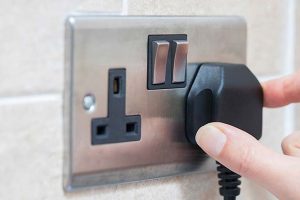Living alone comes with its own set of security considerations. Here are some steps you can take to make your home more secure when living alone:
- Install a Security System: Consider installing a comprehensive security system that includes burglar alarms, motion sensors, door/window sensors, and surveillance cameras. A security system can deter potential intruders and provide you with peace of mind. Display signs or stickers indicating that your home is protected by a security system.
- Reinforce Doors and Windows: Ensure that all entry points, including doors and windows, are sturdy and have proper locks. Consider upgrading to deadbolt locks, reinforced strike plates, and window security film to make it harder for intruders to break in. Use window locks and install security bars on ground-level windows for added protection.
- Outdoor Lighting: Illuminate the exterior of your home to deter burglars. Install motion-sensor lights near entrances, pathways, and other dark areas. Adequate lighting makes it more difficult for intruders to approach your home undetected.
- Secure Spare Keys: Avoid hiding spare keys outside, as burglars are familiar with common hiding spots. Instead, give a spare key to a trusted neighbor, friend, or family member. If you must keep a spare key outside, use a secure lockbox with a combination or keyless entry.
- Maintain Privacy: Keep your curtains or blinds closed, especially at night, to prevent people from seeing inside your home. Maintaining privacy reduces the chances of someone targeting your home.
- Establish a Safety Routine: Develop a habit of locking doors and windows every time you leave your home, even for a short period. Ensure that all doors are locked before going to bed at night. Establishing a consistent safety routine reduces the risk of a security breach.
- Be Mindful of Social Media: Avoid sharing your exact home address or indicating when you’ll be away on social media platforms. Broadcasting your absence can make your home a target for burglaries. Share vacation photos and updates after you return home.
- Get to Know Your Neighbors: Establish a good relationship with your neighbors. They can be an additional set of eyes, notifying you or the authorities if they notice anything suspicious. Join or create a neighborhood watch program if available in your area.
- Secure Your Wi-Fi Network: Protect your home network by securing your Wi-Fi with a strong password and enabling encryption. Regularly update the firmware on your router to ensure it has the latest security patches. This prevents unauthorized access to your network and sensitive data.
- Personal Safety Measures: Take personal safety precautions such as keeping your phone charged and within reach, having emergency contacts readily available, and considering self-defense classes or devices for your personal safety.
- Notify Trusted Individuals: Inform a trusted friend, family member, or neighbor about your schedule and when you expect to return home, especially if you’re going on a trip. This way, someone is aware if you don’t arrive as expected and can check on you or alert the authorities if necessary.
It’s always a good idea to conduct a thorough security assessment of your home and address any vulnerabilities specific to your living situation. Additionally, consider consulting with security professionals or local law enforcement for personalized advice based on your location and circumstances.



